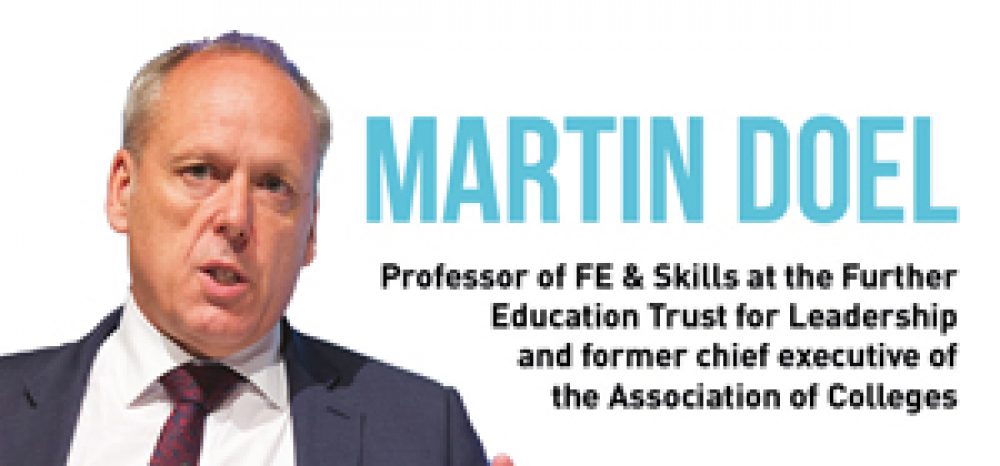Figures from the Organisation for Economic Co-operation and Development put England and Northern Ireland behind for numeracy and literacy, but they should not detract from policies already dealing with the issue, argues Martin Doel.
his week’s report from the Organisation for Economic Co-operation and Development (OECD) on adult skills has had a big impact.
It prompted front page headlines, ministerial interviews and outraged leader columns in broadsheet newspapers.
The story that England and Northern Ireland has millions of adults with poor skills and that over 55-year-olds do better than under the 25-year-olds in this latest international test is compelling — shocking even — because it suggests there’s been no education progress for 30 years.
Yet again we’re outclassed by the Japanese and the Finns. But is that really the case?
This survey of adult skills is a major enterprise which has involved testing 170,000 adults across 20 countries in a project lasting three years.
No-one would want to argue with the thoroughness with which the research was put together, but I think care needs to be taken about over-interpreting the results.
OECD’s weighty documents and data-rich presentations make some serious and compelling arguments for change, but they build these arguments on the basis of a one-hour test. Some 5,000 adults in England took the test, including people who now live here but were educated elsewhere.
Yet again we’re outclassed by the Japanese and the Finns. But is that really the case?“
Everyone taking the test was given three marks — for literacy, numeracy and problem solving — which range from 150 to 350 in all the countries which participated.
The average scores for most countries and most age groups in England clustered around the 260 to 280 mark.
The age, class and education gaps in England that OECD identifies and deplores are real, but it’s also important not to exaggerate.
This is one set of key skills tests. We can and should do better, but we also need to stick with a course of action and avoid panic and any kind of knee-jerk reaction or political jockeying.OECD is a serious-minded, research-focused organisation with a mission.
Through its reports, tests and data, the OECD wishes to persuade governments and societies to set ambitious targets, link education and work, collect good data, foster lifetime learning and ensure no-one is left behind.
I don’t think any of us working in FE would argue with any of these ambitions.
OECD recommendations accompany their reports and the presentations and are familiar because they’re widely accepted across OECD’s member countries and because, by and large, they’re right.
For example, they call for targeted spending, especially for those who are disadvantaged, strong engagement between institutions and employers, good use of skills in the workplace and a culture of lifelong learning. These are things the Association of Colleges has long supported.
This week’s report shines an uncomfortable spotlight on the English and maths skills of the population.
These are areas of acknowledged weakness. In fact, the government has already introduced a policy that students who do not achieve a C grade at GCSE in maths and English will have to continue to study those subjects.
Schools and colleges need to continue to work on core English and maths skills, while we should all listen to OECD’s suggestion that learning is everyone’s business and relatively fewer adults here keep learning than elsewhere.
Our collective task in response is to continue the improvements to teaching, teacher training, assessment and student engagement that will make the difference.
Martin Doel, chief executive of the Association of Colleges









Your thoughts